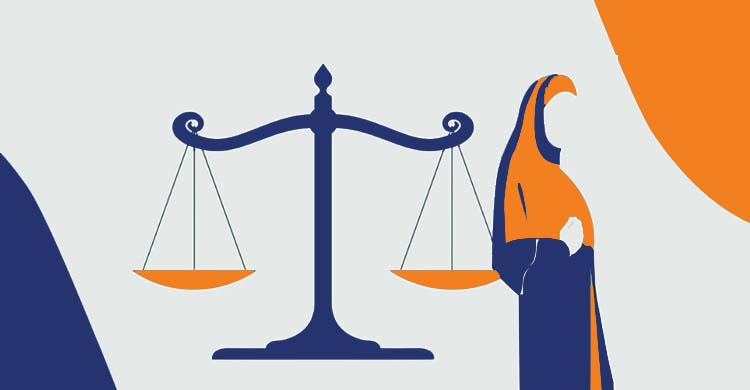Breaking the Silence: Addressing Misconceptions Surrounding Women’s Dower Laws

Salma Aktar Priyo (Pori): Dower-related misconceptions persist in Bangladesh, contributing to the perpetuation of harmful practices. One common misconception is the conflation of “mahr” with the traditional dower system, wherein the bride’s family provides material wealth to the groom’s family. This misunderstanding often leads to financial pressure on the bride’s family, exploitation, and even domestic violence.
In Islam, the concept of dower, known as “mahr,” is a fundamental aspect of marriage and is considered a right of the wife rather than a gift from the bride’s family to the groom or his family. The “mahr” is a gift given by the groom to the bride as part of the marriage contract, and it symbolizes his commitment to support and provide for her. The “mahr” can take various forms, including money, property, jewelry, or any other valuable assets agreed upon by the bride and groom or their families. It is meant to serve as financial security for the bride and to demonstrate the groom’s sincerity and responsibility towards his wife.
In Islamic teachings, the “mahr” is considered the exclusive property of the wife, and she has the right to use it as she sees fit. It is not a payment or compensation for the bride or her family but rather a symbolic gesture of the husband’s obligation to honor and protect his wife.
The Quranic verse 4:4 states: “And give the women [upon marriage] their [bridal] gifts graciously. But if they give up willingly to you anything of it, then take it in satisfaction and ease.”
Overall, in Islam, the concept of dower differs significantly from traditional dower practices found in some cultures, as it is intended to empower and honor the wife rather than place a financial burden on her or her family. However, in Bangladesh, where Islam is the predominant religion, misconceptions surrounding dower often cloud the true meaning and purpose of “mahr”, leading to various social issues.
Another misconception is the belief that “mahr” is solely the bride’s responsibility, absolving the groom of his obligation to provide it. This misconception can result in unfair burdens on brides and their families, exacerbating gender inequalities and financial hardships.
Moreover, cultural norms and societal expectations often overshadow Islamic principles, leading to the commodification of marriage and the objectification of women. The emphasis on material wealth in dower negotiations can undermine the sanctity of marriage and devalue the significance of “mahr” as a symbol of mutual respect and commitment.
Another big misconception is that when a girl divorces her husband by her wife, her in-laws and some members of the society think that the woman loses her right to her dower.
The Dower Act of 2111 provided protection for women to safeguard their dower. The Act stipulates that a woman’s right to dower does not cease after divorce from her husband. Therefore, if a woman divorces her husband, she does not lose her right to dower.
The Dower Prohibition Act of 2014 prohibits and forbids dower. It stipulates that if a married person refuses dower, enforcement action shall be taken against him. This applies to justices of the peace and justice. After the husband’s refusal, legal action will be taken to ensure peace and justice for the woman.
Civil law and common law govern a woman’s recovery of dower after divorcing her husband. Such cases are mainly dealt with under the Women and Child Abuse Prevention Act of 2000 and the Mobaraktana Act of 2021. These laws have been refined to protect women’s rights and interests.
To address these misconceptions, there is a need for comprehensive education and awareness campaigns that promote a deeper understanding of Islamic teachings on “mahr”. Emphasizing the equitable nature of “mahr” and its role in promoting mutual respect and dignity in marriage can help dispel misconceptions and empower individuals to uphold Islamic values in their marital relationships.
Furthermore, legal reforms and social interventions are essential to combat dower-related abuse and exploitation. Strengthening legal protections for women, enforcing anti-dower laws, and providing support services for victims can help address the underlying issues perpetuating dower-related misconceptions and promote gender equality in Bangladesh society.
Writer is a Student Department of Law, World University of Bangladesh.

